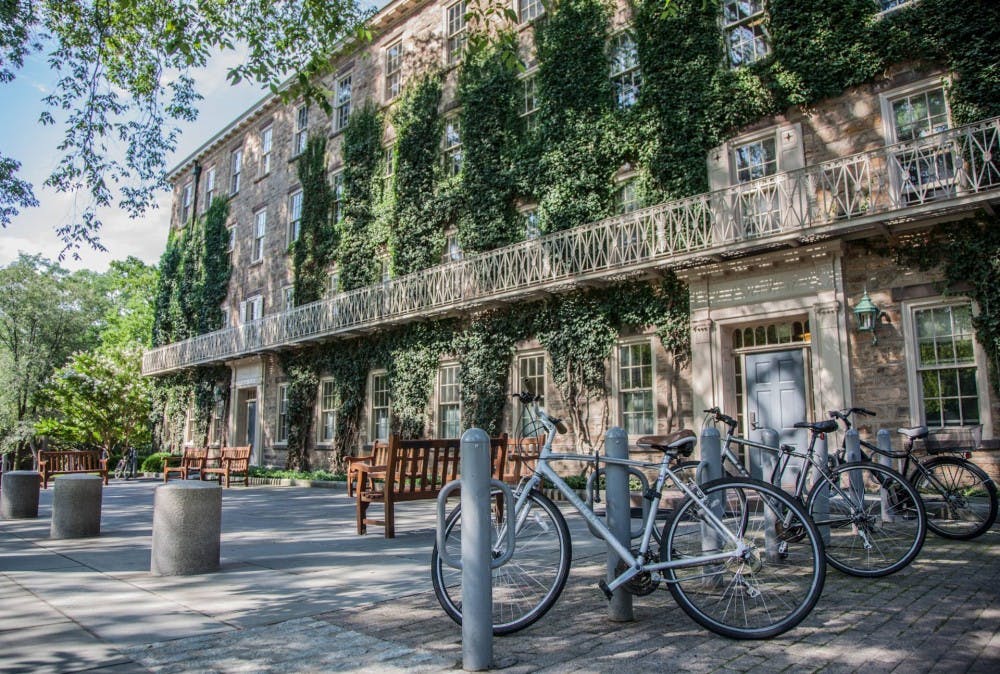Number one, once again! Aren’t we?
Every year, organizations and companies rank colleges and universities that they consider “best” in the country. For the 11th consecutive year, U.S. News and World Report has ranked Princeton as the #1 school in the country. Rather than looking at this number as the end of the story, we should not only continue to focus on and celebrate the things that we are doing well, but also consider what we can do better.
U.S. News’s ranking system is considered by some to be one of the most reliable out there, and is based on graduation and retention rates, undergraduate academic reputation, faculty resources for 2020-21 academic year, financial resources per student, graduation rate performance, social mobility, graduate indebtedness, student selectivity for the fall 2020 entering class, and average alumni giving rate. The calculation of the rankings shifts slightly from year to year. Because of the pandemic, metrics like average class size, faculty salaries, and student indebtedness indicators are now based on two-year averages, instead of just one.
Let’s be honest: some of these factors are important for prospective and current students, but many of them don’t matter as much to our student experiences. In my time here, I don’t think that I will get the chance to work with the majority of the departments. Although certain programs may be buoying Princeton in the rankings, they will have little effect on my student experience here.
Beyond this, there is a lot that schools can do to artificially elevate their positions in the rankings. By setting specific class size limits, or setting specific quotas for applications, schools can adjust their projected scores. Although this is not enough on its own, this means that schools can start to improve their ranking, and the ranking may continue to grow in the future. Even more so, there exists a somewhat controversial method of the peer assessment survey, where “expert opinion” factors in, and top academics can state their beliefs about who deserves to go to the top. This does not occur on many of the other ranking systems, leading some people to question whether it is actually helpful in determining the best schools.
However, other companies and organizations calculate their rankings differently, leading to a reshuffling at the top of their tables. Forbes ranks Princeton in third place, while Niche ranks Princeton in fifth place. Because of the different factors involved in each of these rankings systems, it makes sense that none of the rankings are the exact same. However, some of these factors really force the rankings to lean toward certain schools. For example, social mobility is deemed an important factor in the U.S. News Best National University Rankings, but so are low acceptance rates. This means top schools considered to be good for fostering social mobility are, given their low acceptance rates, inaccessible for many students.
So, is Princeton the best school in the country? Yes. Am I biased? Perhaps, but so is everyone else, including the organizations who produce these rankings. Other rankings, such as the Washington Monthly, put out rankings in response to the U.S. News and World Report, trying to bypass the “easily manipulated measures of wealth, exclusivity, and prestige.” While at the top of these rankings are still other extremely selective schools, Princeton does not fare so well, largely due to a poor service rank. But similar to the rest of the rankings, this is not necessarily the reality of our situation; even so, we can always aspire to do better.
We are tremendously privileged to attend a school that allows us to make a real difference in the world, and can use this opportunity to do something good. Princeton’s ranking gives us opportunities that others do not have. Take these opportunities with open arms, and help Princeton remind our community and the world of the actual reasons that we are special.
Mohan Setty-Charity is a sophomore from Amherst, Mass. He can be reached at ms99@princeton.edu.









